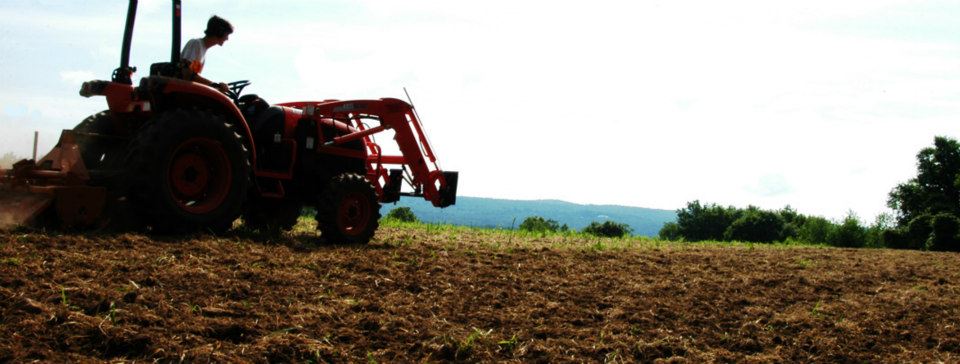

The dream of having a campus farm that produces vegetables for the dining hall is now a reality. Since Amherst signed a deal leasing a plot of land to farmers Tobin Porter-Brown and Peter McLean in November, the newly dubbed Book & Plow Farm has been quickly developing and growing.
“We were really happy to find Pete and Tobin,” said Alex Propp ’13, a student leader of the farm. “The project has become a lot bigger since they came on board.”
The original intent behind the farm was for it to provide produce for Valentine Dining Hall, but under the guidance of the new farmers the end-goal has increased.
“Our first priority is Valentine, but we are in talks with the other Five College schools and their dining halls as well,” Porter-Brown said. “We want to be the academic farm of this region.”
In order to meet this goal lots of work still needs to be done. The farmers are anticipating the construction of the farm’s first greenhouse and washing station to be complete by the beginning of May, and they will start working on the fields once the snow thaws out.
In addition to providing fresh food for the dining hall, the farm will also serve as a means of education.
“There are a variety of things we could do to utilize the farm for teaching,” Propp said. “Biology professors could investigate it to see soil composition. Seniors could potentially use it for their theses. Classes could take field trips.”
The farm’s ambitious goal has been met with a large amount of support from the College. The farmers have been able to meet and interact with students during biweekly meals help at 1 p.m. Fridays at Valentine and have been impressed with Amherst student’s views on sustainable, local agriculture.
“I’ve been amazed at the amount of interest and good will in food sustainability — both from students and the administration,” Porter-Brown said.
Due to this interest, and also the needs of the farm to start up, there are going to be internships at Book & Plow Farm over the summer. The internships are through the Pioneer Valley Citizen Summer program.
“We are looking to have three interns over the summer from Amherst and one or two from Smith College,” Porter-Brown said.
The interns will spend around 80 percent of their time working on the farm, doing fieldwork such as transplanting, weeding, tying tomatoes, and harvesting. The other 20 percent of their time will be spent pursuing individual projects of their own choosing. These projects could range from shooting a video to create exposure for the farm to doing research to see if an apple orchard on unused farm space is feasible. This internship, with time split between producing vegetables and education, reflects “the duality of the operation,” Porter-Brown said.
This duality is also referenced by the farm’s new name. In addition to choosing the name because it speaks to education and vegetable production, Porter-Brown and McLean chose “Book and Plow Farm” because it “makes reference to its geographical location. The Amherst town seal has both a book and a plow on it,” Porter-Brown said.
Along with the new name, the farm is in need of a logo and a slogan. In order to choose this slogan there will be a contest, which is being led and promoted by Monica Cesinger ’15, a member of the farm committee.
“There will be a prize of $100 for the winner, along with fame and recognition and everlasting glory,” Cesinger said.
There will also be a $50 prize for the person who comes up with the best farm slogan. The logo and slogan will be displayed on various things, such as the Book and Plow website, t-shirts, hats, perhaps even a flag.
“This will be everywhere — it’s an awesome opportunity for a creative person to design a logo,” Porter-Brown said.
Along with the logo, the farm is planning a ground-breaking celebration in May. This will celebrate the opening of the farm to produce vegetables, as well as the construction of the greenhouse and the washing station. There will likely be a picnic, where students and faculty alike will have the opportunity to go and see the farm. There might also be salad greens grown at the farm ready to be harvested and consumed at this point, Cesinger said.